Main menu
-
- Accuris (157)
- Advantec (1558)
- Adam Equipment (561)
- Ahlstrom (811)
- A&D Weighing (680)
- Benchmark Scientific (452)
- CAS (291)
- Celltreat (698)
- DSC (120)
- Dyn-a-Med (66)
- Eagle Thermoplastics (65)
- Genie (136)
- GVS (1021)
- Heathrow Scientific (1139)
- Intelligent Weighing Technology (120)
- I.W. Tremont (644)
- Mettler Toledo (325)
- Nasco (87)
- Ohaus (2317)
- Precisa (36)
- Radwag (389)
- Ricelake (49)
- Sartorius (2417)
- Torbal (176)
- Tree (169)
- Vibra (20)
- Vistalab (273)
- Whatman (2115)
-
- Moisture Balances/Analyzers (LOD) (160)
- Spectroscopy (Optical) Moisture Analyzers (1)
- Microwave Moisture Analyzers (LOD) (9)
- Low Moisture Analyzers (LOD) for Plastics, etc... (4)
- Replacement Parts (15)
- Sample Testing & Applications Support (1)
- Sample Pads for Moisture and Fat Testers (18)
- Aluminum Dishes (43)
-
-
- Vet Scales (8)
- Wash Down Scales (84)
- Counting Scales (129)
- Pocket & Compact Scales (42)
- Bench Scales (540)
- Shipping & Floor Scales (199)
- Checkweighing Scales (49)
- Crane Scales (35)
- Health Scales (8)
- Price Computing Scales (23)
- Hanging Scales (27)
- Label Printing Scales (21)
- POS Scales (7)
- Jewelry Scales (10)
- Industrial Scales (25)
- Pill counting scales (4)
- Pharmacy Scales (10)
- Viscometers (12)
-
-
- DSC Pre-Washed and Pre-Weighed Filters (980)
- DSC Washed and Dried Filters (6)
- Syringe Filters and Syringeless Filters (855)
- Capsule Filters (301)
- Venting Filter (48)
- In-Line Filters (27)
- Vacuum Filtration (161)
- Quartz Filters (86)
- Bottletop Filter (93)
- Vacuum Protection Filters (0)
- Centrifuge Filters (204)
- Polycarbonate Filters (67)
-
- Benchkote (22)
- Weighing Papers (16)
- Seed Testing (4)
- Chromatography (38)
- Blotting Products (119)
- Lens Cleaning Tissue (3)
- Microplates (15)
- Multiwell (376)
- Printer and Accessories (47)
- Petri Dish (74)
- Pipettes and Pipette Controllers (586)
- Pipette Tips (255)
- Bottles (95)
- Micro Tubes and Caps (194)
- Flask (137)
- Containers (12)
- Beaker (32)
-
-
- Centrifuges (73)
- Centrifuge Tubes (107)
- Cryogenics (1)
- Dry Block Heaters (9)
- Evaporators (12)
- Freezer/Refrigerator (73)
- Incubators (16)
- Hotplates & Stirrers (73)
- Hydrometer (150)
- Ovens (29)
- Refractometers (45)
- SPECTROPHOTOMETER (0)
- Sterilizers & Autoclaves (14)
- Transilluminator (4)
- Thermometer (73)
- Waters Purifications Systems (18)
- Water & Oil Baths (11)
-
- Incubating Shakers Accessories (94)
- Open Air Shakers Accessories (92)
- Orbital Shakers Accessories (70)
- Vortex Mixers Accessories (70)
- Dry Block Heaters Accessories (68)
- Centrifuges Accessories (236)
- Rotators / Rockers and Incubators Accessories (40)
- Hotplates & Stirrers Accessories (8)
- LabJaws Clamps & Supports (210)
- Microscopy & Histology (77)
- Service (6)
Vacuum Filtration
161 products
Showing 145 - 161 of 161 products
Vacuum Filtration is a technique used for separating solids from liquids quickly by applying vacuum pressure to a filter setup. This method is essential in laboratories for sample preparation, clarification, or purification processes. It offers faster filtration, reduced manual intervention, and improved separation efficiency compared to traditional gravity filtration. Vacuum Filtration systems are widely used in microbiological assay, solvent purification, and particulate collection, ensuring high-quality results in various research and industrial applications.
Vacuum filtration units, crucial in the sterile filtration of biological fluids, leverage vacuum pumps to expedite the process compared to gravity filtration, ideal for large volume applications. These systems, available in individually packaged options in the market, ensure efficient handling and purity.
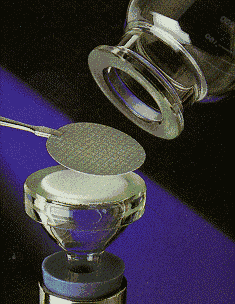
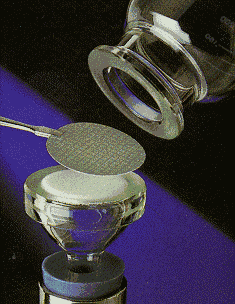
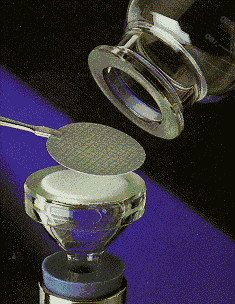
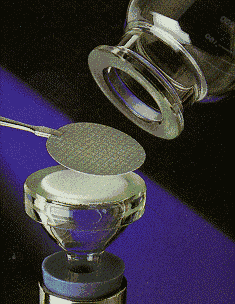
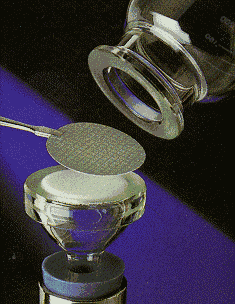
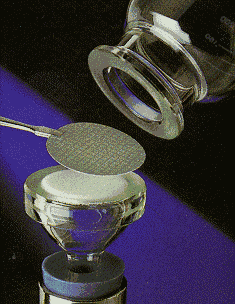
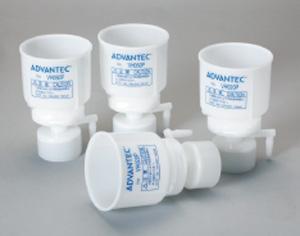
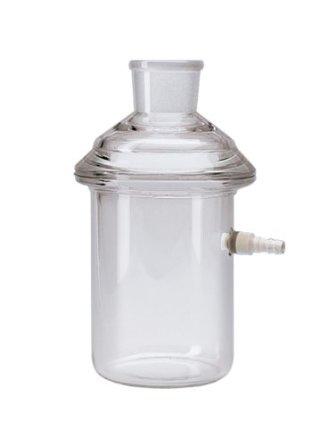
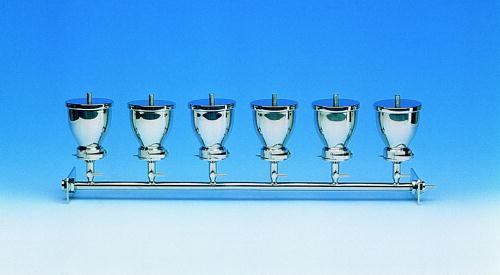
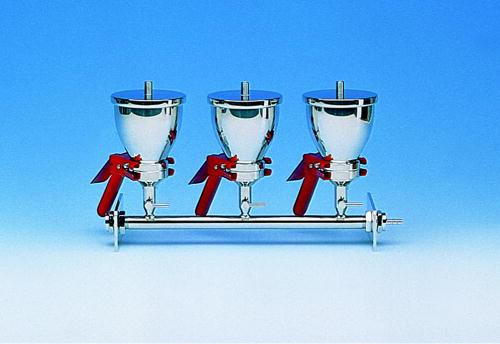
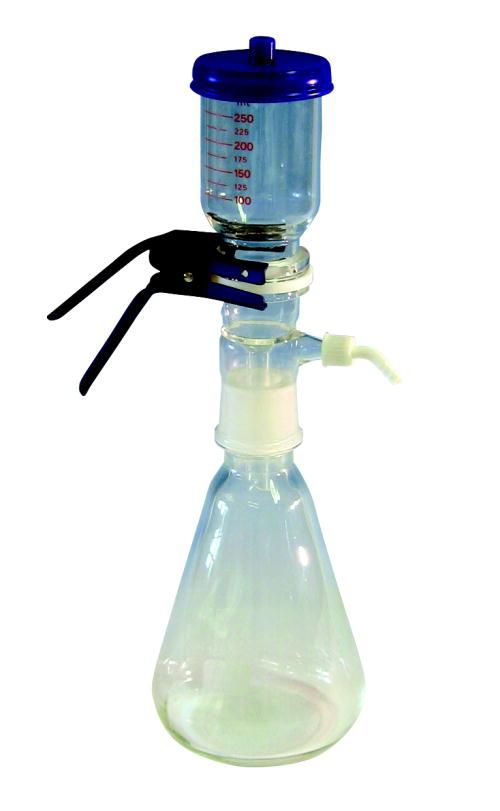
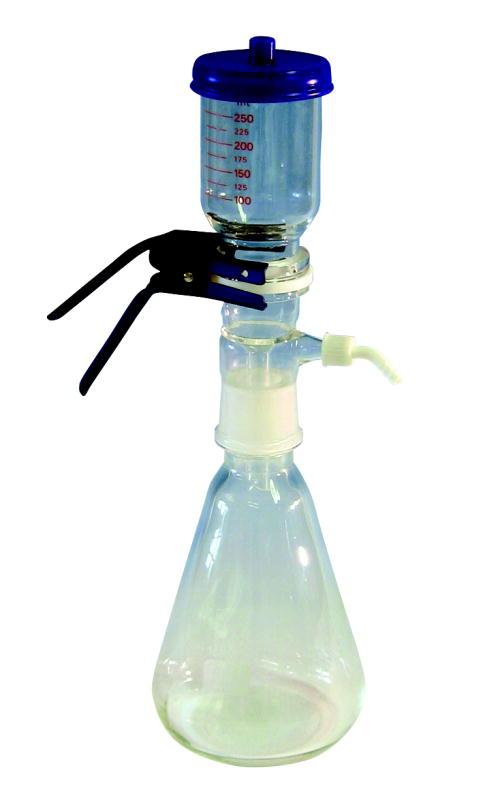
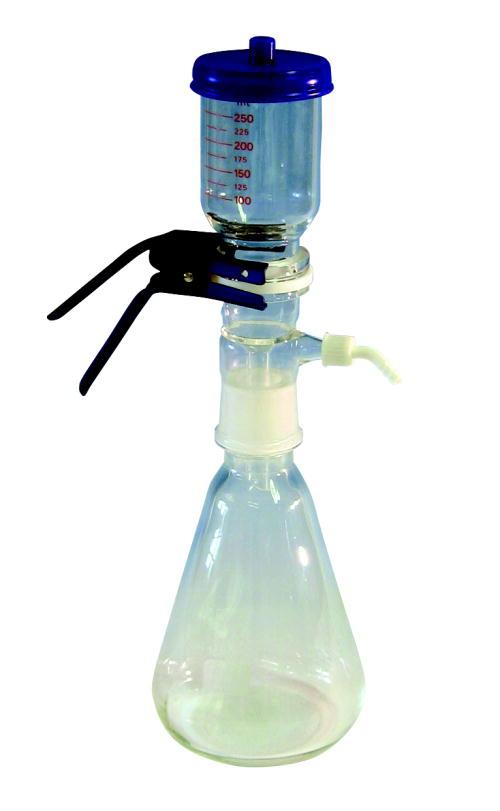
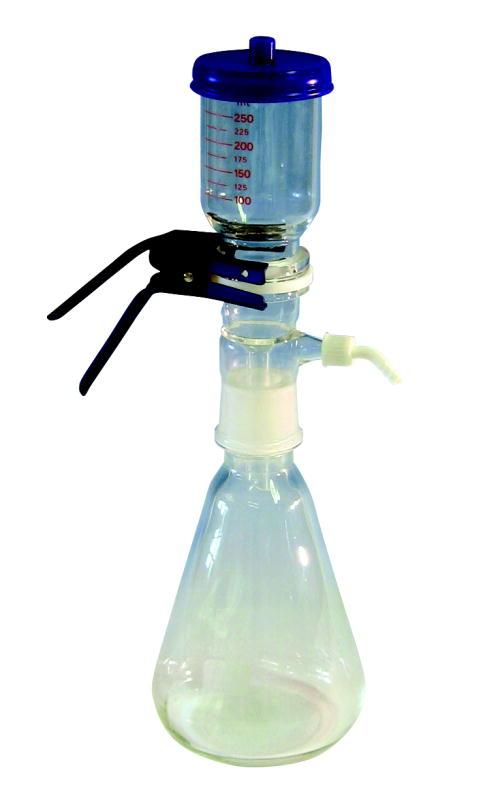
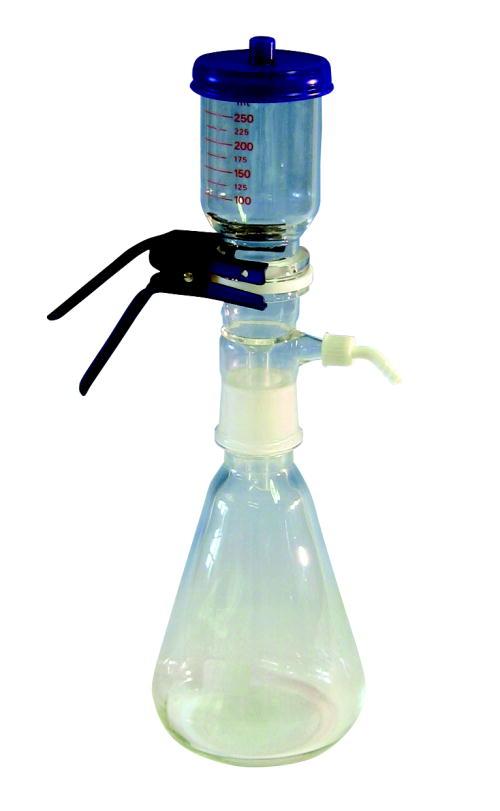
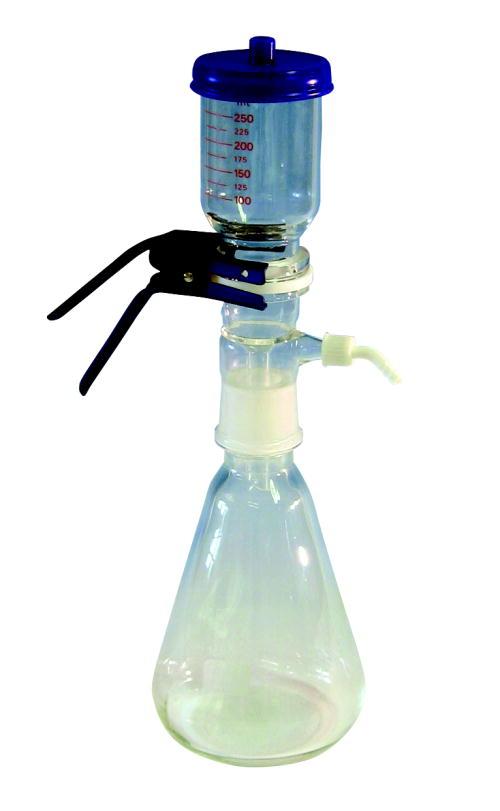
In what type of experiments is suction filtration commonly used?
Vacuum Filtration is a technique used for separating solids from liquids quickly by applying vacuum pressure to a filter setup. This method is essential in laboratories for sample preparation, clarification, or purification processes. It offers faster filtration, reduced manual intervention, and improved separation efficiency compared to traditional gravity filtration.
Vacuum Filtration systems are widely used in microbiological assay, solvent purification, and particulate collection, ensuring high-quality results in various research and industrial applications. In particular, suction filtration, a form of vacuum filtration, is commonly employed in recrystallisation experiments. This specific application helps in the purification of solid compounds by removing impurities more efficiently.
By integrating the benefits of vacuum filtration with specific use cases, such as recrystallisation, laboratories can achieve more reliable and consistent outcomes. This dual approach highlights the versatility and indispensability of vacuum filtration in both general and specialized contexts.
Why is it important to control the strength of the vacuum in suction filtration?
The Importance of Controlling Vacuum Strength in Suction Filtration
In suction filtration, precise control over the vacuum strength is crucial for several reasons.
Preventing Filter Paper Tear
When the vacuum is too strong, the increased pressure can tear the filter paper. This results in the solid material being pulled back into the solvent, effectively nullifying the filtration process. To maintain the integrity of the filter paper, adjust the vacuum to an appropriate level.
Protecting Laboratory Equipment
Excessive vacuum strength can also cause damage to the glassware. The increased suction pressure may lead to cracks or even breakage of the Büchner flask or any other glass container used. By carefully controlling the vacuum, you ensure the longevity and safety of your laboratory equipment.
Key Points:
Filter Integrity: Avoid tearing the filter paper by moderating the vacuum strength.
Equipment Safety: Prevent glassware from breaking by not overloading it with excessive pressure.
Maintaining an optimal vacuum level ensures efficient filtration while safeguarding both the sample and the equipment.
What role does the pump play in suction filtration?
The Role of the Pump in Suction Filtration
Suction filtration is a key laboratory technique for speeding up the filtration process. Unlike standard filtration, which relies on gravity to pull the liquid through the filter, suction filtration uses a pump to create a pressure difference.
How It Works
The pump is connected to a Büchner flask and actively removes air, creating a vacuum. This vacuum significantly increases the pressure gradient across the filter paper. Consequently, the liquid is drawn through the filter much faster than it would be under the force of gravity alone.
Benefits of Using a Pump
Increased Filtration Rate: The primary advantage of using a pump in suction filtration is the accelerated rate at which liquids are filtered. This can save considerable time in the laboratory.
Variable Control: The strength of the pump can often be adjusted, allowing for precise control of the filtration speed. This variable rate is especially useful for handling different types of solutions and varying filtration needs.
Improved Efficiency: With the ability to maintain a steady vacuum, pumps help ensure a more consistent filtration process, improving overall efficiency.
The pump is therefore essential for optimizing the speed and control of the filtration process, making suction filtration a highly effective method for laboratory settings.

